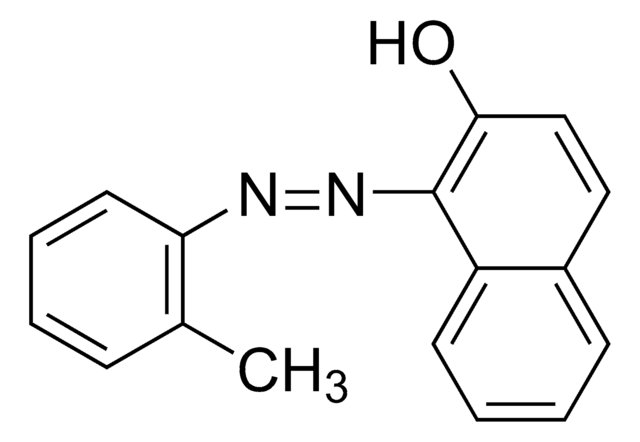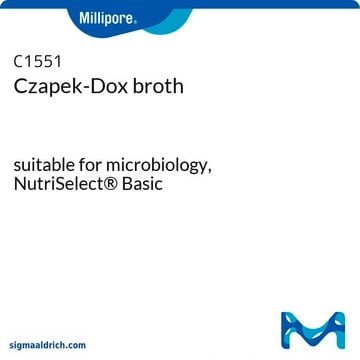69143
Orange II sodium salt
analytical standard
Sinónimos:
Orange II
About This Item
Productos recomendados
grade
analytical standard
Quality Level
assay
≥98.0% (HPLC)
technique(s)
HPLC: suitable
gas chromatography (GC): suitable
application(s)
cleaning products
cosmetics
food and beverages
personal care
format
neat
SMILES string
[Na+].Oc1ccc2ccccc2c1\N=N\c3ccc(cc3)S([O-])(=O)=O
InChI
1S/C16H12N2O4S.Na/c19-15-10-5-11-3-1-2-4-14(11)16(15)18-17-12-6-8-13(9-7-12)23(20,21)22;/h1-10,19H,(H,20,21,22);/q;+1/p-1/b18-17+;
InChI key
CQPFMGBJSMSXLP-ZAGWXBKKSA-M
¿Está buscando productos similares? Visita Guía de comparación de productos
Application
Packaging
Recommended products
Storage Class
13 - Non Combustible Solids
wgk_germany
WGK 3
flash_point_f
Not applicable
flash_point_c
Not applicable
ppe
dust mask type N95 (US), Eyeshields, Gloves
Elija entre una de las versiones más recientes:
Certificados de análisis (COA)
¿No ve la versión correcta?
Si necesita una versión concreta, puede buscar un certificado específico por el número de lote.
¿Ya tiene este producto?
Encuentre la documentación para los productos que ha comprado recientemente en la Biblioteca de documentos.
Los clientes también vieron
Nuestro equipo de científicos tiene experiencia en todas las áreas de investigación: Ciencias de la vida, Ciencia de los materiales, Síntesis química, Cromatografía, Analítica y muchas otras.
Póngase en contacto con el Servicio técnico













